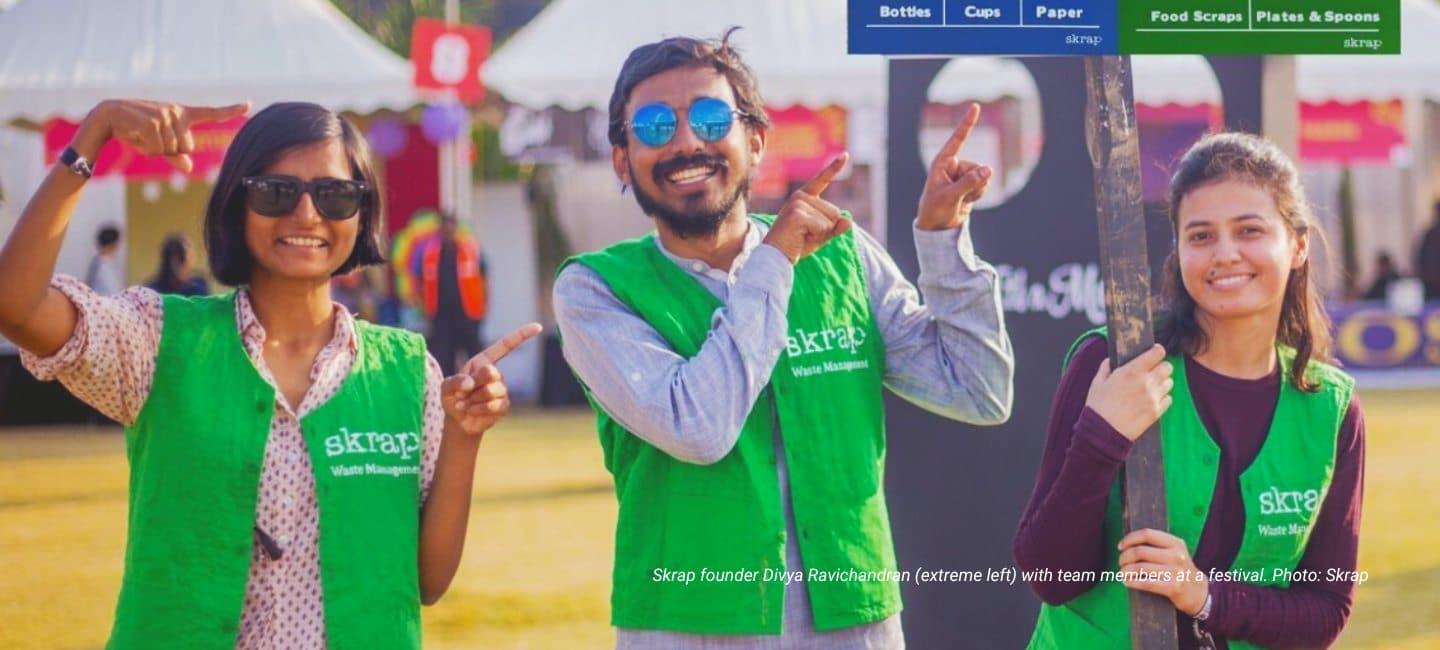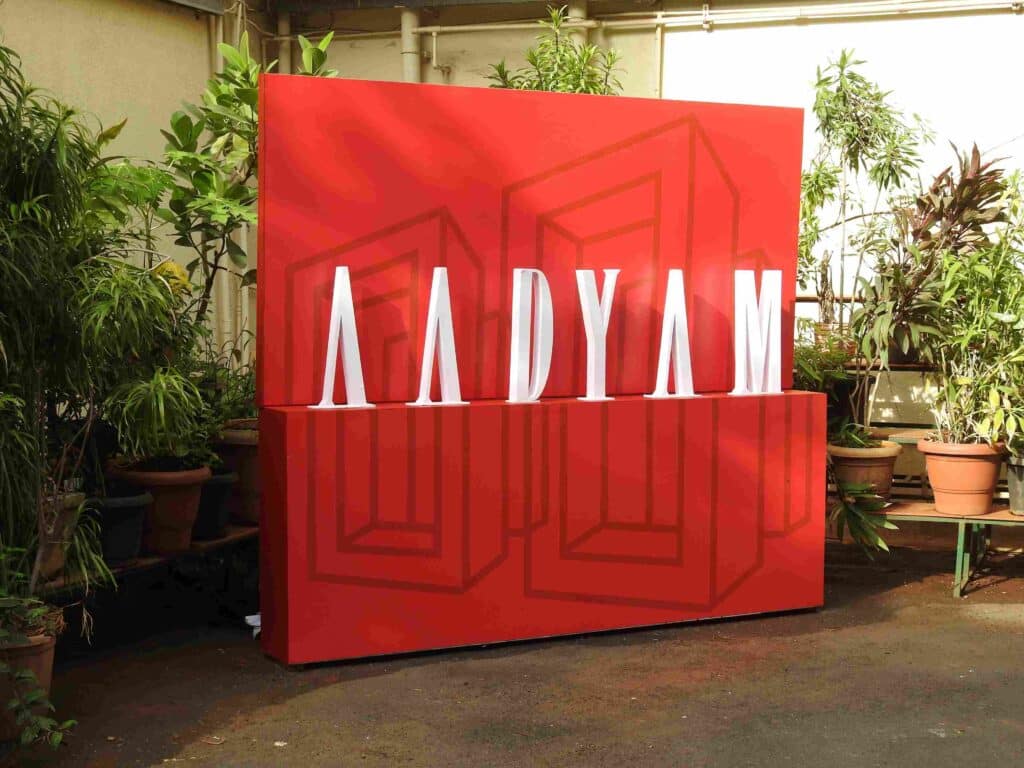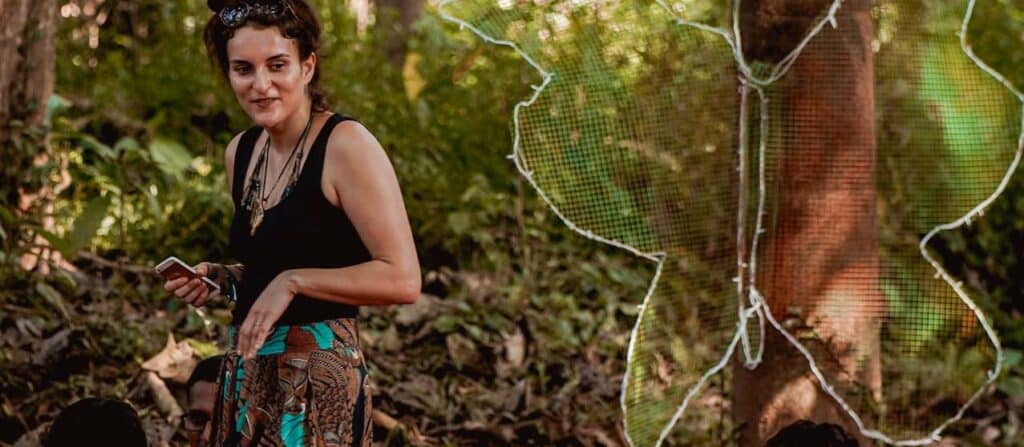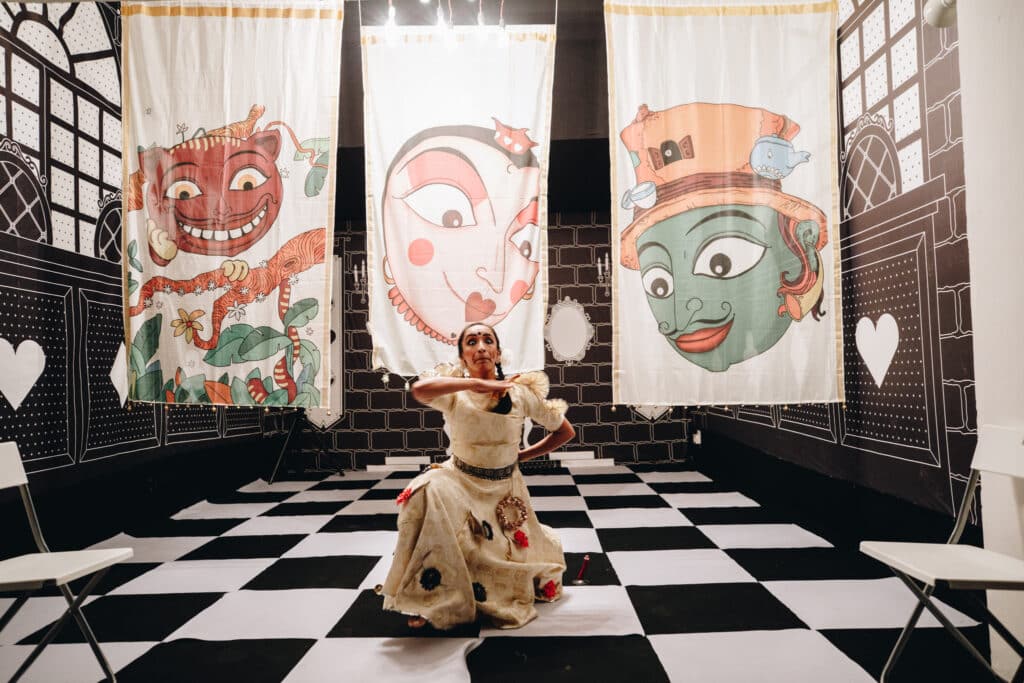For many music festival attendees, volunteers from Skrap are a familiar sight. The environment sustainability firm, which provides waste management solutions to brands and businesses, has worked extensively on events such as Bacardi NH7 Weekender, Mahindra Blues Festival, Mahindra Kabira Festival and Magnetic Fields. We interviewed founder Divya Ravichandran, about how Skrap works to reduce waste at these gatherings and what festival goers can do to aid their efforts. Edited excerpts:
How much waste is typically generated at music and cultural festivals in India?
The amount of waste generated at an event can vary widely. There is no single benchmark. It can vary from 500 kg to five tonnes for a small-scale event, depending on where it is set. We have seen that an event that is hosting 100 people over a weekend can generate over a tonne of waste. Other events with a longer duration create around five tonnes of waste.
Waste can come from various sources. For example, biodegradable waste, which includes vegetable peels, biodegradable plates and cutlery and excess food. Events always prepare for a buffer amount of food, about 20% to 30%, especially if they are hosted at a five-star hotel.
The amount of recyclable waste generated depends a lot on the “do you haves”. What kind of food courts do you have? How many vendors do you have? How large is the festival? Are there glass bottles [which can increase the overall weight]? The single-use materials used, the stage set-up, banners and other decorations can also add to the waste generated.
How does the location of the festival affect the amount of waste generated?
I have noticed that when an event is held at a pristine location, such as the Meghalaya leg of the Bacardi NH7 Weekender, Magnetic Fields at Alsisar Mahal in Rajasthan and Mahindra Kabira Festival at the ghats of Varanasi, the organisers are often forced to be more conscious of how they leave the venue behind. They are keener to minimise the trash footprint. Event organisers in Bengaluru are usually more mindful of waste management because of the local regulations. The civic body is strict about things such as not using flex panels and having proper segregation.
What questions do organisers typically ask you?
My favourite question from organisers is, “Hey, do you charge for this?”. A lot of new production companies have this question, which I always find very amusing. I tell them, you charge for tickets so we charge to implement our service.
The first time we work with organisers, our goal is not to overwhelm them because we know that it is a new thing for them. We always focus on simpler stuff like executing waste management, so that their team understands it. Then, we create a waste audit report so that they are able to see the data, which, I think, really calls out to them.
Another question we hear often is: “Hey, your team is just going to come in after the festival and take care of the waste, right?” We work with them to help them understand that waste management requires a lot of planning and it has to be an integral part of the event. At the NH7 Weekender, for example, they involve us four to six months prior to the festival date. When the stages are being planned, we also figure out, in tandem, things like where dustbins should be placed.
From the second year onwards, my favourite question that event organisers come back to us with is: “We did waste management, what more can we do?”
What are the challenges that you have faced getting the audience to dispose of or reduce waste properly?
Building awareness can be challenging and it depends on the demographics of the audience and the city. It is easier to build awareness amongst a smaller audience of 100-200 people versus 1,000 plus people. This is where communications such as engagement posters become a key factor. It is our job to help enable waste segregation processes on ground that can start with something as simple as waste segregation infrastructure. At any of our events, there are two separate, colour-coded bins with fun, easy-to-follow signage above them.
We also have volunteers who help attendees and participants. They usually wear green Skrap jackets and are easy to identify. We realised that having a green team of ‘trash talkers’ encourages and kind of nudges people to participate in the waste segregation process. Many of our volunteers lead a zero-waste lifestyle, are passionate and love engaging with the audience, whether it is guiding them, answering questions, or holding up fun posters that spur a lot of cool conversations.
Many people who are Gen Z or millennials resonate with our mission and drop by to have conversations. They realise that they are in an event where they don’t have to worry about the trash they generate or where it will end up. They also get their friends to participate.
Stage announcements are important because a lot of people don’t know they are meant to participate in waste segregation. Hearing about it from their favourite artists on social media makes it more appealing.
Food is an integral part of the festival experience. How do you help mitigate food waste?
For food vendors, we share a guideline document with them with information that it is a zero-waste or low-waste event. It outlines important actionable points they can do, such as five things they can do at their end before the event and on ground, making sure they use only reusable or compostable serving wares and not single-use plastics and thermocol plates. We also provide them with options for vendors to source these materials and request them to avoid using sauce or sugar sachets and move to bulk dispensers instead and also have on-ground waste segregation.
Once they are on ground, we meet every food stall and conduct a quick five-minute training session with each of them. Our volunteer and operations teams also regularly check their segregation levels during the event and give feedback if they need any help. Apart from this, we let them know that they can hand over the excess edible leftovers for donation purposes to our volunteer team at the end of the event. They are more than happy to participate in the donation programme because they have made the food with their hands, with a lot of hard work. This resonates with them and deepens their participation on-ground as well.
Do you have any pointers for festival goers to keep in mind?
How [far one can] be a conscious festival goer depends on what the festival enables them to do as well. For example, at an event like NH7 [Weekender] or Mahindra Kabira, they have social media messaging or delegate letter kits that outline two or three things. One of them would be to let the festival goer know about the segregation process, and that there are volunteers to help. The second would be recommendations on what to avoid (single-use plastics) and encouraging them the move to reusable bottles to refill at water stations across the venue.
A third thing we like to push for is reusing the cups. Every time [an attendee] goes to a bar/beverage counter to get a drink, they usually toss the cup away once they are done. We piloted the cup reuse campaign at Weekender in 2018. A lot of people told us that it wouldn’t work. We encouraged the organisers to put a small incentive for people to come back to the bar with their cups and get like Rs. 50 off on their beverage. We set the level at 10-20% of people’s participation and decided to take that as a small win. About 70% of people participated, which meant a 70% per cent reduction in the number of cups.




Share on